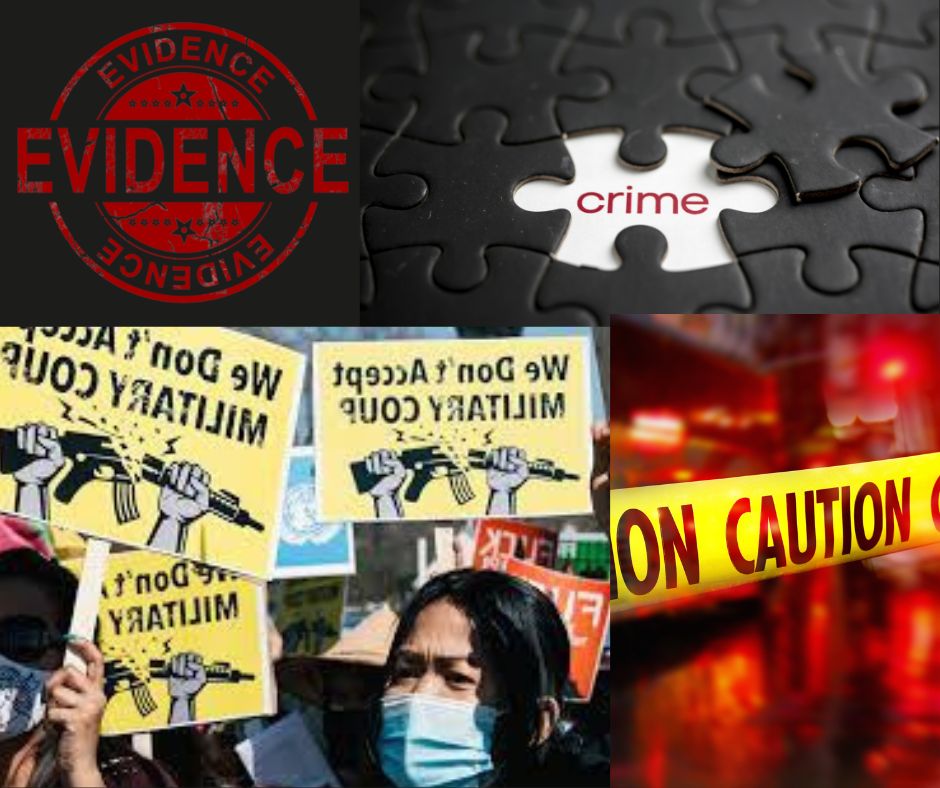
The Council established the Mechanism to gather the most severe international violations.
Absence of responsibility
The military clearance operations in August 2017 in Rakhine State, which drove most of the Rohingya population from their homes, took place five years ago, Mr Koumjian noted in his opening statement.
“Almost all continue to reside in neighbouring nations in anticipation of the day when circumstances will permit their safe and respectable return home.
He claimed that such conditions would be significantly aided by the absence of impunity for those who committed the acts of violence.
According to him, increasing evidence of the most heinous international crimes, including murder, torture, forcible deportation and transfer, persecution, incarceration, and targeting of civilians, has emerged since the coup.
The absence of responsibility for individuals who think they are above the law, he said, “continues to cause suffering for the people of Myanmar.”
Putting women and children first
According to Mr Koumjian, the Mechanism prioritises obtaining proof of crimes against minors and sexual and gender-based abuse.
Even though women and children are particularly vulnerable during conflicts, crimes against them are frequently underreported and under-judged.
We have accumulated information about the arbitrary detention and torture of children in Myanmar, sometimes to harm their parents. He added that the evidence of sexual and gender-based crimes against both men and women is also growing.
Lack of due process
Four pro-democracy activists were executed in July, also covered in the report.
Even though the death penalty is not in and of itself a crime against humanity, Mr Koumjian stated that “imposing the death sentence based on proceedings that do not satisfy the basic conditions of a fair trial can amount to a crime against humanity.”
There are “clear indicators” that the killings were carried out unlawfully, he claimed. He added that the processes lacked transparency and that almost no details about the allegations and supporting evidence were publicly available.
Challenges and advancement
Given that workers in Myanmar are denied access to crime scenes and witnesses after submitting dozens of requests to the government, Mr Koumjian claimed that the Mechanism encounters numerous difficulties. Despite this, significant advancement has been made.
He remarked, “Many brave people, NGOs, and other organisations have shared necessary evidence with us.
“We have undertaken a great deal of screening and interviews with people who have given us essential first-hand knowledge regarding crimes committed within the nation. It is a matter of growing concern to ensure the safety and support of people who provide us with information.
Gathering proof of crimes
To share with judicial authorities, including for cases before the International Criminal Court and the International Court of Justice, the Mechanism has created 67 evidence and analytical packages.
From more than 200 sources, around three million “information items” have already been gathered and processed.
They consist of written reports, movies, photos, geographical images, and statements from interviews. According to Mr Koumjian, his staff now has the onerous duty of analysing them.
For instance, he added, “Facebook has provided with the Mechanism millions of items from networks of accounts that the firm took down because they misrepresented their identity—the funds were actually under the authority of the Myanmar military.
Misinformation on social media
The team has located posts on these military-run networks that incite hatred and fear of the Rohingya. He cited an instance of a post that surfaced on ten separate pages within one such network soon before the beginning of the clearing operations in August 2017.
The message, according to him, “included false reports of Rohingya arming in large numbers and posing a threat to Myanmar’s Buddhists, as well as a picture of a cow with its stomach cut open and its entrails removed, which is repugnant to Myanmar Buddhists.”
Seeking justice
Mr Koumjian thanked the Human Rights Council and urged all nations “dedicated to ending the greatest bloodshed in Myanmar” to support the work of the Mechanism.
“The most egregious international crimes perpetrated in Myanmar must know that we are unified in our efforts to end the cycle of impunity and to ensure that those guilty will face justice,” he said.
Analysis by: Advocacy Unified Network
